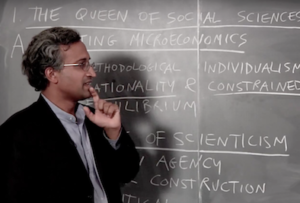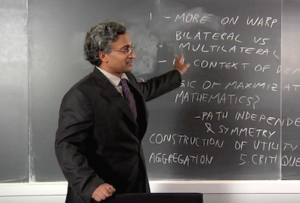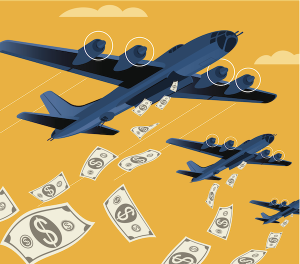A student of microeconomics learns that any desirable efficient market allocation can be sustained by a competitive equilibrium (the Second Theorem of Welfare Economics), given appropriate lump-sum wealth redistributions. This is typically understood as a means to correct unfair market outcomes. What are the real world implications of the second theorem? How well does it address distributional concerns?
Efficient markets can still produce socially unacceptable outcomes. Some individuals may get so little income that they cannot survive. In competitive markets, wages are determined by the intersection of demand and supply, and there is nothing that says that the “equilibrium” wage is a living wage.
The virtually unrestricted dynamics of the Walrasian general equilibrium system challenge a common interpretation of the Second Fundamental Theorem, namely, that redistribution followed by market exchange can implement any Pareto optimum. But without an account of how out-of-equilibrium behaviors of the market participants move the system to a competitive equilibrium, the Walrasian model does not show this. All that Arrow and Hahn claim for it is that “in a certain sense any desired efficient allocation can be achieved by redistribution of initial assets followed by the achievement of an equilibrium”.
Do you agree? Tell us what you think in the comments below.
Three years ago, we started working on our blog “Reading Mas-Colell” to present critical commentary on “Microeconomic Theory” by Andreu Mas-Colell, Michael Whinston and Jerry Green, a textbook widely used in Ph.D. programs in economics around the world. We are happy to announce that we are now ready to launch our new course ” Advanced Microeconomics For The Critical Mind”. The course aims to introduce interpretative and contextual content to provide exposure to microeconomics as a domain of unsettled questions and live debates, rather than just a field of applied mathematics.
Please join us in the course for more discussion on the role of mathematics and modeling in microeconomics.








